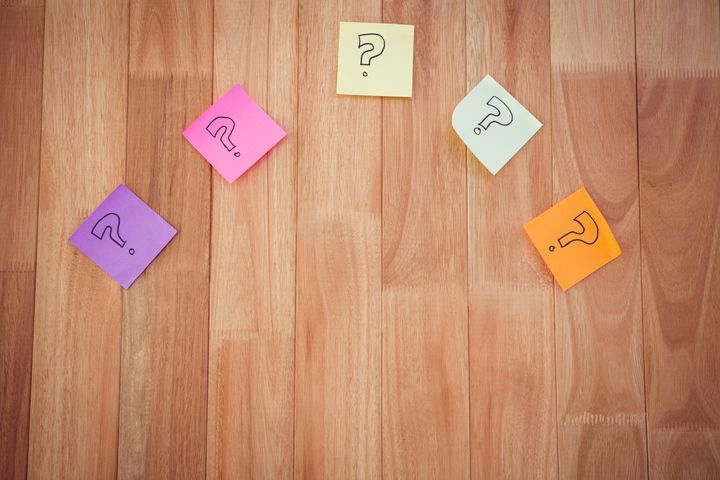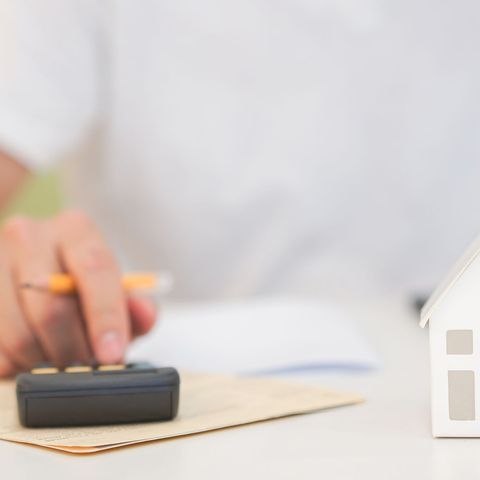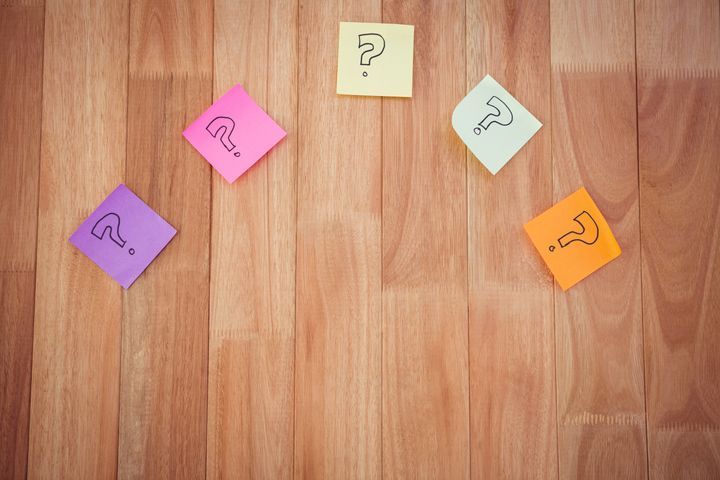Lynnette Khalfani-Cox, The Money Coach_®__, is a personal finance expert, speaker, and author of 15 money-management books, including the New York Times bestseller Zero Debt: The Ultimate Guide to Financial Freedom._ Lynnette has been seen on more than 1,000 TV segments nationwide, including television appearances on Oprah, Dr. Phil, The Dr. Oz Show, The Steve Harvey Show, Good Morning America, The TODAY Show and many more. A former financial news journalist for The Wall Street Journal and CNBC, Lynnette is the CEO of TheMoneyCoach.net LLC_, a financial education company that she runs with her husband and co-founder, Earl Cox._
Lynnette earned her Bachelor of Arts degree in English from the University of California, Irvine. She also holds a Master of Arts degree in Broadcast Journalism from the University of Southern California. Lynnette and Earl are the proud parents of 3 children – including one recent college graduate, one current college student and one college-bound teenager.
1. What ways did you adjust your business in light of COVID-19?
When COVID-19 struck, the impact our financial education business was immediate and severe. All my speaking engagements got canceled, travel to meet clients and to conferences came to an abrupt halt, and new deals just kind of dried up as everyone tried to get a handle on the extent of the pandemic.
After about a month, when it was clear we were dealing with a major crisis and that there would be work shutdowns and working from home, then the phones started ringing again. Our clients (mostly financial services companies and large non-profit organizations) pivoted and started going virtual. Their employees began working from home and they began crafting ways to offer their products and services primarily through digital channels. That laid the groundwork for an uptick in business and, in fact, a surge in client demand – especially because there was so much initial economic pain that many organizations wanted to help people with their finances.
Ultimately, the pivot on our end wasn’t a hard shift at all, from a business perspective. I’ve worked from home for many years. Having my teen daughter at home from school for 8 months – now that was a challenge!
But on the work front, the pandemic mainly meant that instead of in-person workshops, seminars, speaking events and media interviews, all those things transitioned to virtual engagements. Even now, that’s how we’re operating and I expect that will remain the case for most of 2021.
2. What are some ways small businesses can be nimble in this period of shut down?
I know that shifting to working from home or remotely has been tough on a lot of small business owners. But honestly, any entrepreneur who wants to survive and thrive in the current year and in years to come absolutely must have – at the very least – a hybrid business strategy.
No matter what products or services you offer, you really do need to be able to sell them through both in-person channels, like at a retail store, as well as through digital channels, online. Again, I know it’s not easy for every industry. And it will require some creativity as well.
But those companies that can quickly shift to delivering their offerings in various ways – especially in case of an ongoing pandemic or disruptions or any kind – will fare far better and emerge as much stronger businesses in the future.
3. How can consumers who have been financially impacted by COVID-19 protect their credit score from decreasing?
The single best way people can protect their credit scores if they’re facing economic hardship is to reach out to their creditors. Banks, credit unions, auto finance companies, mortgage lenders, credit card issuers and student loan companies are all working deals with clients that are struggling financially. But they won’t know you need help if you don’t reach out and ask for it. That goes for individuals and small business owners. So I’d strongly urge people who feel like they may get behind on their bills, and hurt their credit ratings, to ask for payment plans, installment plans, loan forbearances, deferments and other options that lenders are more than willing to discuss. At the very least, try to pay the minimum payments on your obligations to make sure you don’t have late payments that mar your credit files.
4. The COVID-19 pandemic, like many of our recent national crises, has had an uneven and unfair impact on minority families especially from a financial standpoint. What areas would you like to see policy makers focus on in order to provide relief and sustainable economic improvements?
It’s been extremely disheartening to me to see how devastating the pandemic has been to people of color over the past year. Some 50% of Black-owned businesses have been shuttered due to the fallout from coronavirus. Additionally, among African-Americans who work for others, many generally tend to work in jobs where they’re the last ones hired and the first ones fired. And let’s not forget about the wage gap. So even though there’s been a major improvement in the overall labor market in America, the unemployment in the Black community is still running at about twice the rate of their White peers. And Blacks who are working tend to be lower paid than their counterparts.
Furthermore, in all candor, the recent COVID-19 outbreak has really highlighted deeper inequality and a host of injustices that have long plagued Black people and other minorities in
American society. To combat some of these problems, I’d like to see policy makers focus on the challenges facing African-Americans in three key areas: jobs, housing and education.
On the jobs front, we need major investments in small business creation, via access to capital, business grants and financial support, such as forgivable PPP loans to existing small businesses. On the housing front, we know that homeownership is a significant pathway to wealth building. Yet fewer than half of all Black families are homeowners, compared with about 75% of Whites. So anything and everything that can support homeownership would be welcomed. Ditto for educational initiatives and outreach into the Black community. Biden is said to be weighing partial student loan cancellation, perhaps to the tune of $10,000. That would be great for the Black community since African-American college graduates typically have more hefty college loans.
Finally, I realize that this last idea is more controversial, but I strongly believe that Black people are absolutely owed financial reparations. When you look at our 400+ year history in America: more than 200 years of slavery, the Jim Crow era, redlining, the disenfranchisement of Black people for so long and in so many ways – even while Blacks helped build America’s economy over centuries. For all these reasons, and more, I think reparations are more than justified. Economic reparations would be one part of the healing process that’s necessary if policy makers truly want to have a racial reckoning that comes to terms with our past, attempts to make amends, and builds a financially healthier, more inclusive future for all citizens.
5. Not knowing what’s ahead for the US economy, what are some recommendations on how to prepare financially – in the short-term and throughout 2021?
In times of uncertainty, it’s smart to have a strong cash cushion. So it’s important to save as much as possible and have some reserves to help you deal with potential “what if” scenarios.
What if you lose your job or have your work hours reduced? What if you get sick and can’t work? What if you go through a separation or divorce? All of these scenarios point to the need to establish or strengthen your emergency savings.
Again, this is often easier said than done. But if you can’t save much based on the money you have left from your paycheck, then look at other potential sources of savings.
Can you sell some things you no longer want, need or use? Can you get a side hustle or a second job/part-time job to make some extra money and stash that away? Or do you anticipate any windfalls, like stimulus checks or an income tax refund?
Those can all help you create or boost your savings. As a goal: over the 2021 year, if someone can build up a 3 month cash cushion, or maybe even more, they’re putting themselves in a much better financial position.
BONUS QUESTION: You have helped countless consumers get back on their financial feet, as you had done when you worked to pay down $100K in credit card debt in 3 years. What are some lessons you wish you learned when you were young so you didn’t have to struggle with credit card debt?
Looking back to when I got myself into debt, I wish I knew more about smart spending, delayed gratification and the need to just tell myself “no” more often. A lot of my debt was due to poor choices and runaway spending. Thankfully, I was able to pay off my debts without ever missing a single payment.
But I dug myself into a hole primarily because I became accustomed to living on credit as a lifestyle crutch. These days, if I can’t afford something, I don’t buy it. I wish I learned that much earlier in life – and didn’t just spend mindlessly, out of habit, or because I saw others doing it.
The good news is that now I get happy about investing – and watching my money grow.
The whole idea of getting a “shopper’s high” from, say, going to the mall? Zero appeal to me.
But buying some stocks or another rental property? Now that’s
exciting!
To learn more about Lynnette, visit her free advice site, AskTheMoneyCoach.com_, check out her video-based financial courses at_ Money Coach University_, or connect with Lynnette on social media via LinkedIn, Twitter, Facebook and Instagram._



